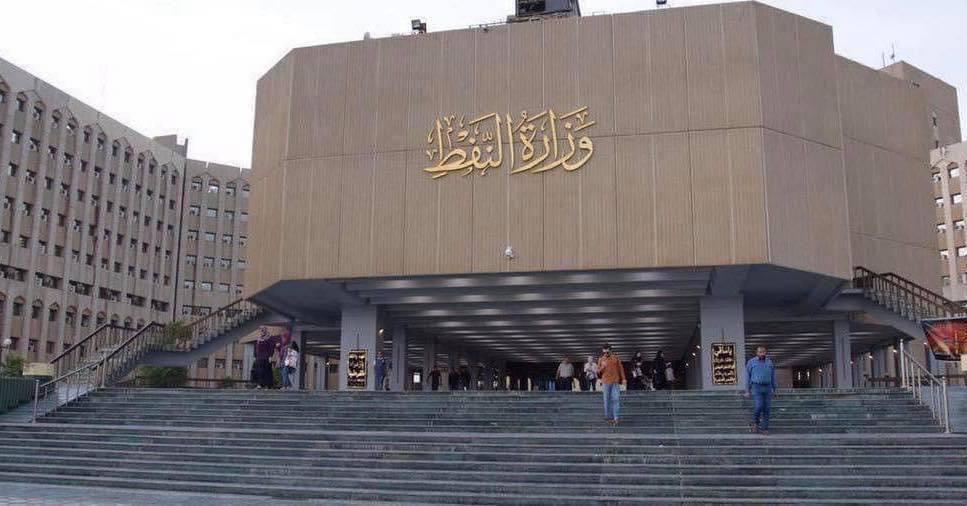The Iraqi government has recently been seeking to assert its control over the Kurdistan region’s energy sector, against the backdrop of the Federal Supreme Court ruling on February 15th, which deemed the Kurdistan Regional Government 2007 oil and gas law unconstitutional, thereby voiding it. The reignited tensions between the central government and the region coincided with unprecedented political developments, at the forefront of which is the continuation of the political crisis in Baghdad due to the inability of the winning blocs in the October 10th elections to form the government, as well as the growing differences between the two main Kurdish parties, the Kurdistan Democratic Party led by Massoud Barzani, and the Patriotic Union of Kurdistan headed by Bafel Talabani, over the position of President of the Republic. This has weakened the Kurdish position regarding contentious issues with Baghdad.
The renewed tension between Kurdistan and the Iraqi government has been manifested in a number of ways, including:
A new oil company controlled by Baghdad: On May 21st, the Iraqi Ministry of Oil announced that the federal government aims to establish a new oil company in the Kurdistan region, tasked with establishing new service contracts with oil companies operating in the region. This step has been perceived as part of the central government’s attempts to control the region’s energy sector, as the government asked oil and gas companies operating in the Kurdistan region to sign new contracts with the state-owned marketing company SOMO, instead of the regional government. The Iraqi Ministry of Oil also appointed international law firm Cleary Gottlieb Steen & Hamilton to communicate with oil and gas companies operating in the region and initiate talks to ensure their operations comply with Iraqi law.
A campaign of mutual accusations: The Ministry of Oil, represented by the North Oil Company, accused the regional administration on May 14th of taking control of oil wells in Kirkuk governorate, which are contested by both parties. In response, Kurdistan’s regional government issued a statement denouncing these accusations. It argued they were politically motivated, had no legal basis, and aimed at sowing confusion regarding the rights of the Kurdish people to deprive them of benefitting from their resources.
Demands for UN intervention: On May 20th, the Kurdistan Regional Government submitted a request to the UN Security Council to send an envoy to settle the outstanding issues between the regional and federal governments. The UN Security Council agreed to engage in efforts to settle the crisis, which reflects the level of deterioration in relations between the two sides, especially on the energy front, following the Federal Supreme Court ruling. On May 22nd , UN Secretary-General Antonio Guterres declared the need to organize a dialogue between the federal government and the Kurdistan Regional Government, to produce a comprehensive agreement on outstanding issues based on the constitution, including the issue of sharing energy resource.
Tensions in Sinjar: As Baghdad’s differences with the Kurdistan Regional Government on oil fields worsened, the crisis between the two parties over the Sinjar district was also exacerbated. Tensions increased after the incursion of the Iraqi army’s Joint Operations Command on May 2nd in Sinjar, to pursue armed loyalists to the Kurdistan Workers Party (PKK). This led to the displacement of thousands to the province of Dohuk in the region. These differences prompted the UN representative in Iraq, Jeanine Hennis-Plasschaert, to call on the two parties, on May 17th , to uphold the normalization agreement, signed on October 9th, 2020, seeking to expel armed groups from Sinjar in preparation for the return of its displaced people.
Disputes over the control of border crossing points: Managing border crossings is one of the most pressing points of tension between the federal government and the Kurdistan region, especially since the revenues from those crossings represent an important resource. In early April, the federal government was criticized by some political forces for inefficient control over border crossing points, and for mismanaging public resources these points generate.
Renewed controversy over the foundations of the relationship: The Prime Minister of the Regional Government Masrour Barzani gave a speech in the Think Tank Chatham House in London on April 20th, in which he argued that the implementation of the confederation system in Iraq would strengthen the nation’s various components. The speech renewed controversy in Iraq about disputed issues between the federal government and the region of Kurdistan. Tensions between the two sides are likely to worsen in the immediate future, exacerbated by various factors, such as demographic displacement, the refusal of some armed militias to withdraw from areas previously entered in the context of the war against ISIS, as well as the political crisis in Baghdad related to forming a new government, in which Kurdish parties are directly involved.
The moves by Iraq’s central government to assert control over energy resources in the Kurdistan region come at a time when the region is seeking to consolidate its sovereignty and legitimize its political presence domestically and internationally, irrespective of the political orientations of the government in Baghdad. The contradiction between the two orientations could well lead to a further escalation of tensions between the two sides, especially in view of the discord between the various political factions in Baghdad regarding the formation of a government, and the differences between the Kurdish factions themselves regarding this issue. That said, these tensions could be eased if agreement is reached on an appropriate timeline to resolve these differences, and if both sides exhibit sufficient flexibility on controversial issues, foremost of which is a review of the laws outlined by the constitution to regulate the relationship between them.


